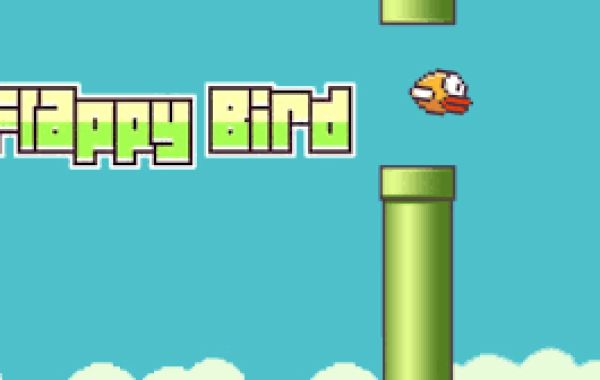What is Flappy Bird?
Flappy Bird is a 2D side-scrolling game with straightforward mechanics. Players control a small bird, tapping the screen to make it flap its wings and navigate through gaps between green pipes. The objective is simple: avoid hitting the pipes or the ground and achieve the highest score possible.
While the premise is easy to grasp, the game’s execution proved to be infamously difficult. The precise timing required to keep the bird in flight made Flappy Bird both frustrating and addictively challenging.
The Rise of a Global Sensation
Flappy Bird debuted in May 2013, but it didn’t gain widespread attention until early 2014. Within months, the game became one of the most downloaded apps on both iOS and Android platforms, topping the charts in over 50 countries.
Its success was fueled by word-of-mouth, viral social media posts, and its “easy to play, hard to master” gameplay. Players competed to achieve higher scores, sharing their frustrations and triumphs online. This communal experience added to the game’s appeal, turning it into a cultural phenomenon.
Why Was Flappy Bird So Addictive?
Flappy Bird’s addictive nature can be attributed to its combination of simplicity and difficulty.
- Simple Mechanics: The game’s single-tap control made it accessible to players of all ages.
- Challenging Gameplay: The difficulty of navigating the bird through the pipes created a compelling “just one more try” mentality.
- Instant Feedback: Each failure was met with an immediate opportunity to restart, keeping players engaged.
- Competitive Spirit: The high score system encouraged players to compete with friends, fostering a sense of achievement.
This blend of frustration and determination kept players coming back for more, making Flappy Bird a prime example of how simple designs can create complex emotional experiences.
The Controversial Downfall
Despite its massive success, Flappy Bird’s creator decided to remove the game from app stores in February 2014. Nguyễn Hà Đông cited concerns over the game’s addictive nature and the overwhelming attention he received as reasons for its removal.
This decision only increased the game’s mystique, leading to skyrocketing demand. Smartphones with Flappy Bird installed were listed on auction sites for exorbitant prices, and the game’s removal became a significant event in gaming history.
Flappy Bird's Legacy
Flappy Bird’s impact on the gaming industry was profound. It demonstrated that independent developers could achieve massive success without the resources of large studios. The game’s minimalist design and viral popularity inspired countless clones and similar titles, creating a new subgenre of challenging, single-tap games.
Moreover, Flappy Bird highlighted the power of social media in shaping gaming trends. Players sharing their experiences online turned the game into a global phenomenon, showing how community engagement can drive success.
Criticisms and Challenges
While Flappy Bird was celebrated for its simplicity, it also faced criticism. Some accused the game of borrowing heavily from classic Nintendo titles, particularly its use of green pipes resembling those from the Mario franchise. Others questioned its meteoric rise, with allegations of fake reviews boosting its initial popularity.
However, these controversies did little to diminish its legacy. Flappy Bird remains a symbol of how unpredictable the gaming industry can be, where a small, unassuming game can dominate the global stage.
The Influence on Mobile Gaming
Flappy Bird paved the way for the success of other hyper-casual games. Its model of straightforward mechanics, quick sessions, and viral potential became a blueprint for future mobile titles. Developers realized that games didn’t need complex graphics or deep narratives to succeed; they simply needed to be engaging and shareable.
Popular games like Crossy Road and Geometry Dash owe much of their inspiration to Flappy Bird’s success, proving that its influence extended beyond its brief time in the spotlight.
Why Flappy Bird Still Matters
Even years after its removal, Flappy Bird remains a topic of nostalgia and fascination for gamers. It serves as a reminder that sometimes, the simplest ideas can have the most significant impact. The game also highlighted the challenges developers face when dealing with sudden fame and the responsibility that comes with creating addictive content.
Conclusion
Flappy Bird was more than just a game; it was a cultural phenomenon that captured the essence of mobile gaming. Its straightforward yet challenging design resonated with millions, turning it into an overnight sensation. Though its creator chose to step away from the spotlight, the legacy of Flappy Bird endures.







